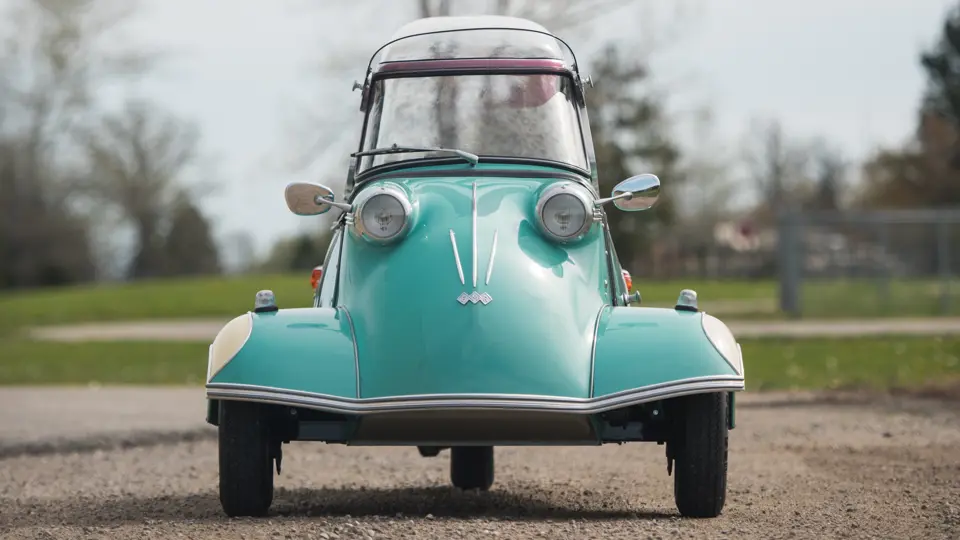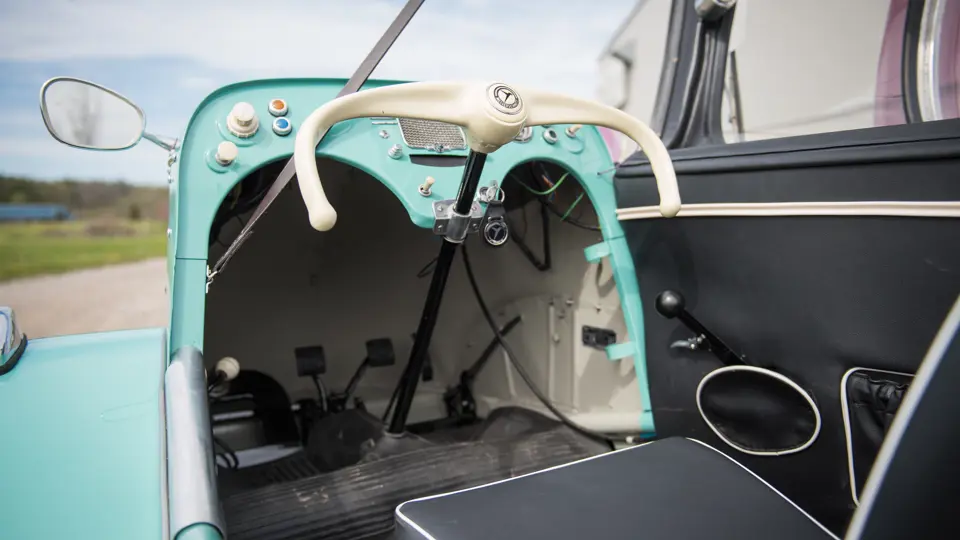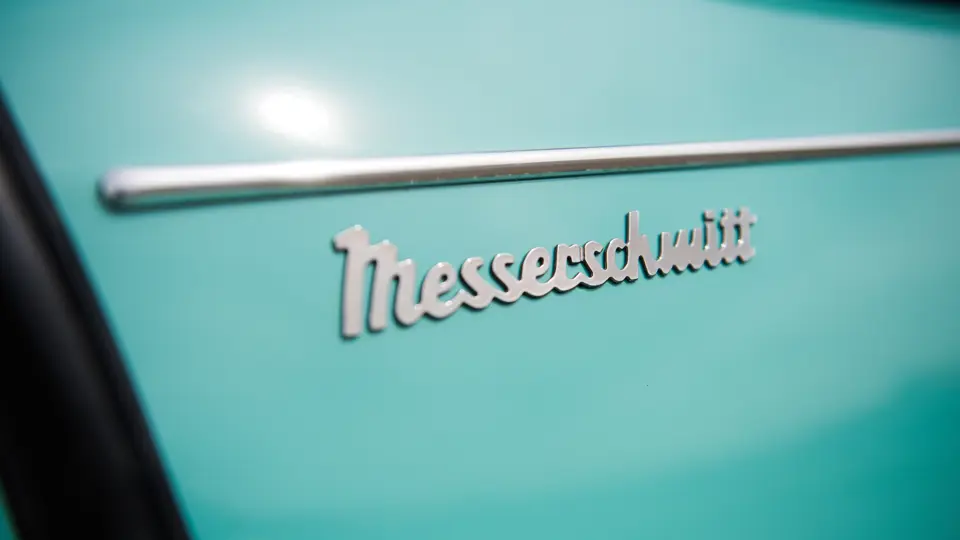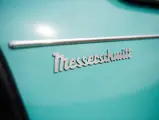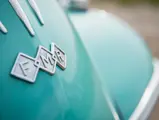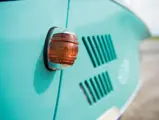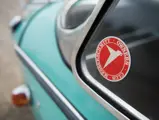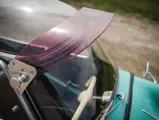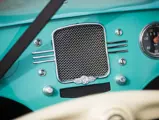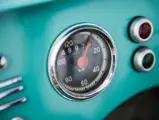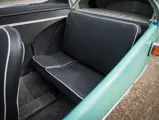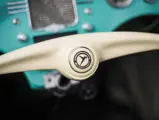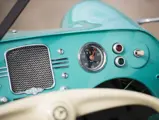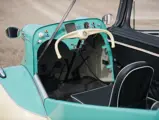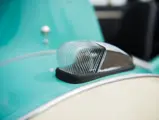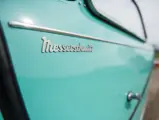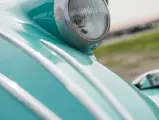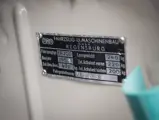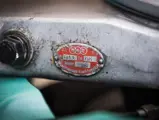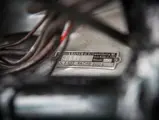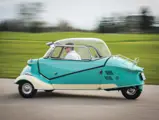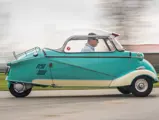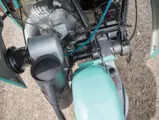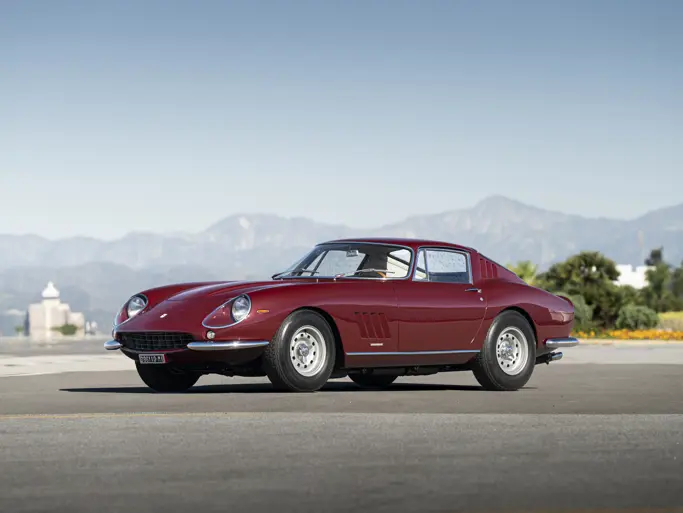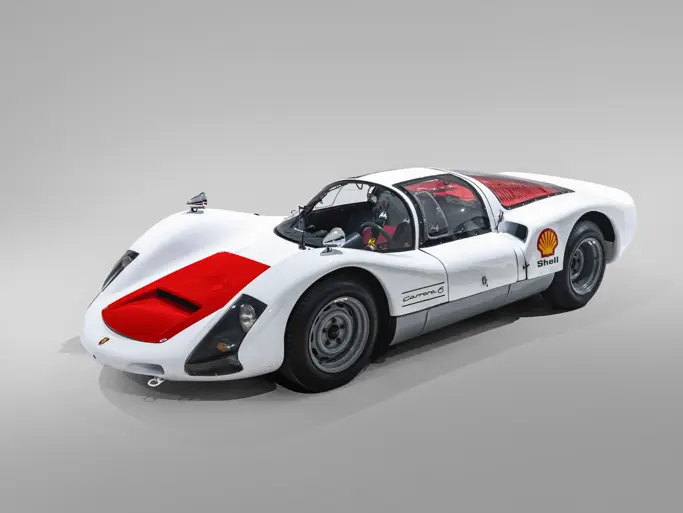9.7 bhp, 191 cc Fichtel & Sachs two-stroke single-cylinder engine, four-speed manual transmission, independent torsilastic rubber suspension, and cable-operated mechanical drum brakes. Wheelbase: 82 in.
Beginning in the early 1950s, famed German aircraft engineer Fritz Fend brought his aeronautical expertise to the automotive world. The result? The Messerschmitt Kabinenroller.
The three-wheeled, single-door “Kabinenroller” (“Cabin Scooter” in English) was produced in two main variants. First came the KR 175 in 1952, instantly recognizable by its aircraft-style bubble canopy. Over the next three years, using the KR 175 as a template, the vehicle was almost totally redesigned, including upgrades such as wheel cutouts in the front fenders and an improved canopy design. Thus, in 1955, the KR 200 was unveiled.
Due to restrictions on fuel and steel consumption in post-war Europe, the KR 200 served as a more economical means of transportation than the “large cars” that were nearly impossible for most Europeans of the time to own. The adorable Messerschmitt, estimated to get over 80 miles per gallon, was received strikingly well by the European population, with close to 12,000 built during its first year—a record-high for Kabinenroller models.
Fend stayed true to his roots when designing the KR 200, incorporating plane-like features such as a “steering bar” that slides side-to-side about a horizontal axis in order to turn the wheels. Its most notable features, however, are its engine and transmission. The Fichtel & Sachs two-stroke, single-cylinder engine is capable of restarting in the opposite direction, allowing the vehicle to reach four speeds when traveling both forward and in reverse, making for an elusive getaway car.
The KR 200 presented here has spent most of its life in North America after being acquired in 1972 by Irving E. Stine of Cambridge Springs, Pennsylvania, from Frau Lisl Müller in Hundham, Germany. After purchasing the cabin scooter in 2011, the consigner commissioned Ralph Hough, President of the Messerschmitt Owner’s Club of North America, to perform a thorough engine and transmission rebuild. Notably, all parts used came certified from the Messerschmitt Owner’s Club in England.
Upon completion, the car was shipped to Harbourside Collision in Nova Scotia, owned by the consigner, where he and his team of automotive technicians spent over 500 cumulative hours on a nut-and-bolt restoration of the car. No detail was spared on this KR 200. High-quality BASF urethane paint was used to give the car its original color of turquoise, while the correct colors of grey were used on the inner cabin, firewall, and outer floor. The correct two-tone deluxe molding kit was also added, along with an original windscreen visor, jack, and luggage rack. Finally, marque specialist Nick Poll, a part of the Messerschmitt world for over two decades, provided the interior kit.
Complete with an electronic ignition for added reliability, and driven just 25 miles since restored, this like-new KR 200 will make a delightful addition to any enthusiast’s collection.




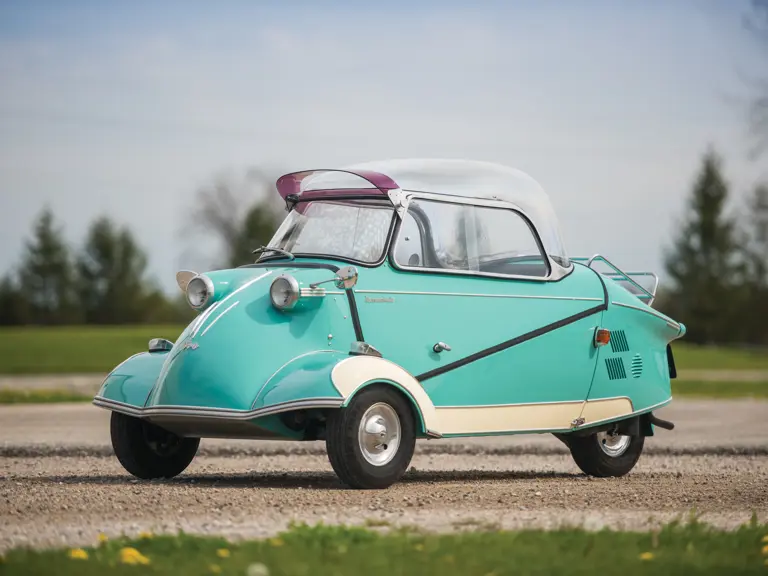
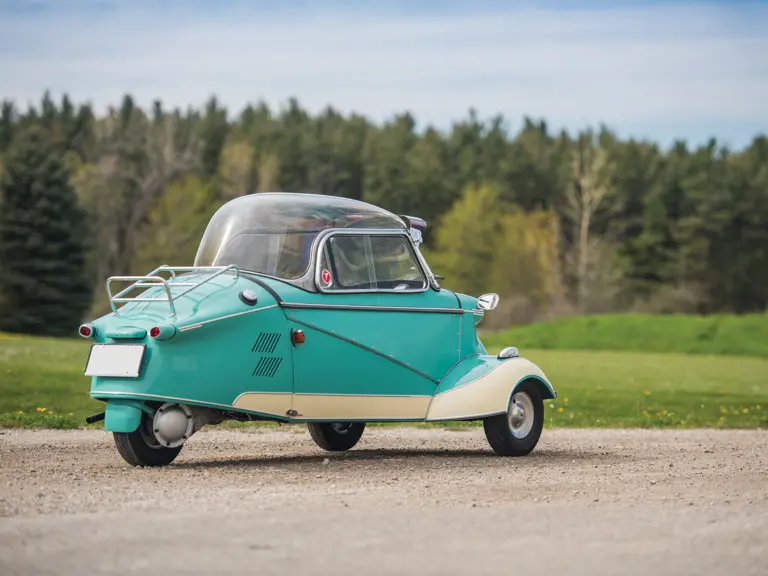
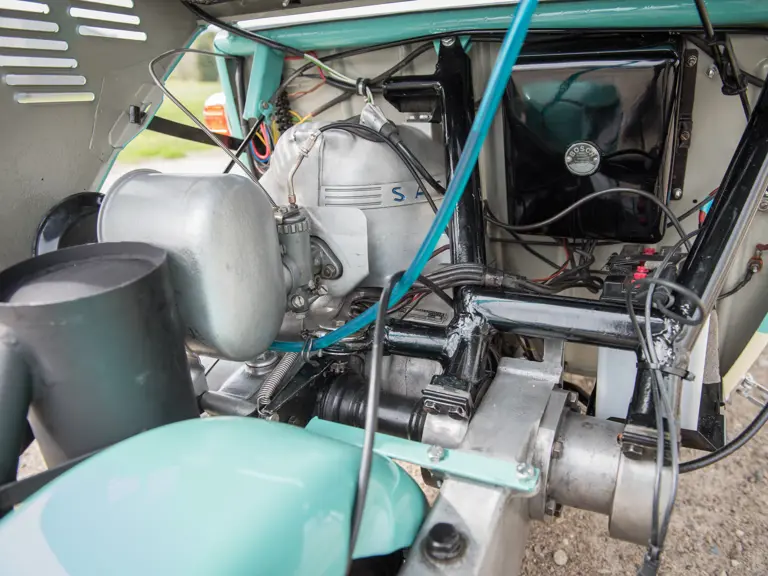
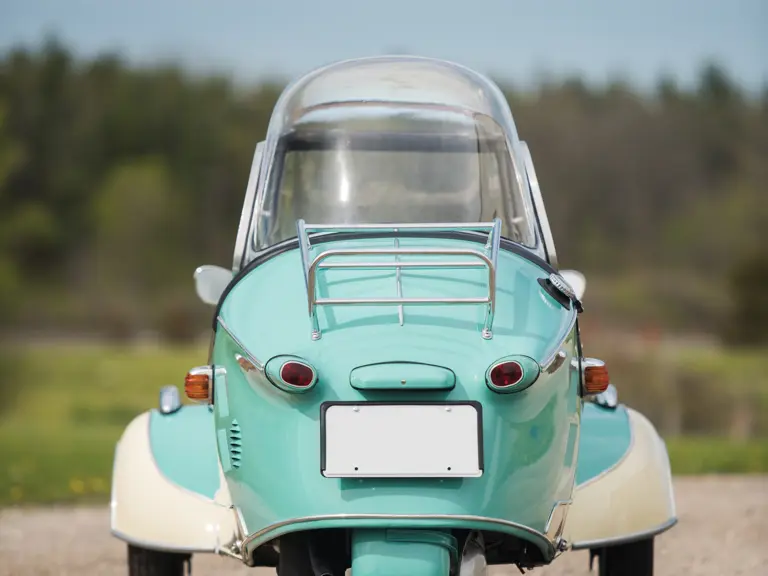
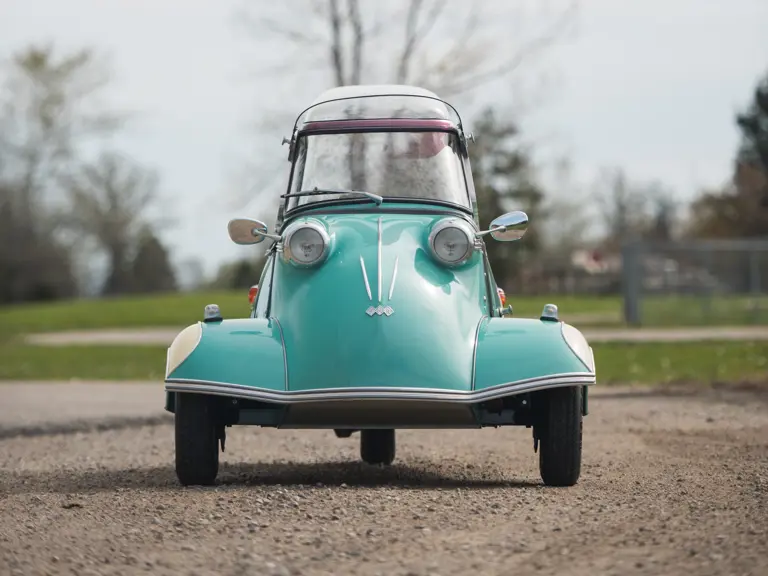
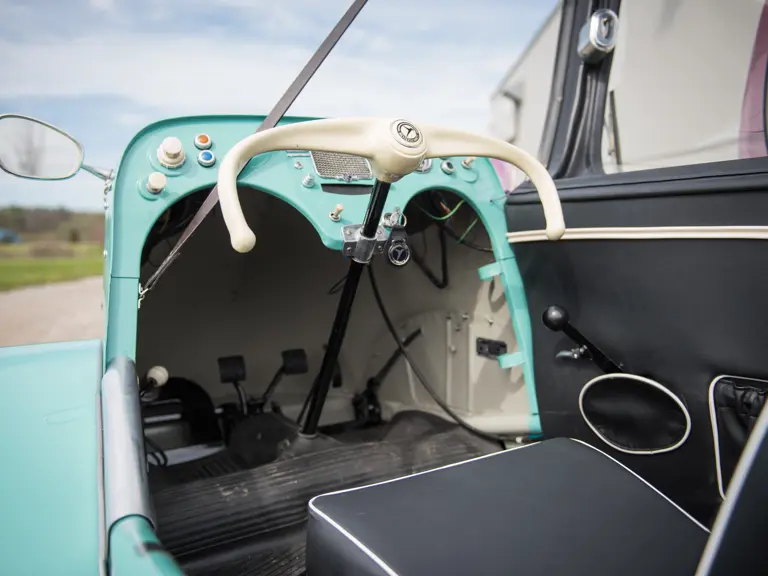
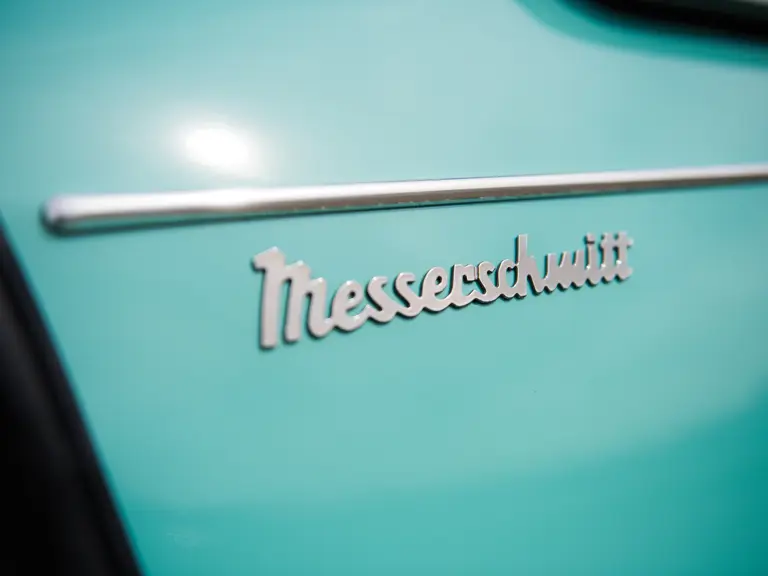
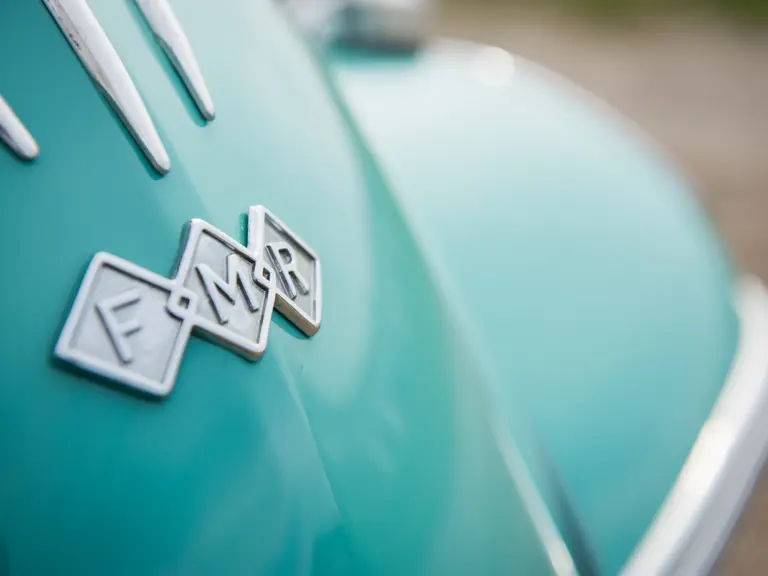
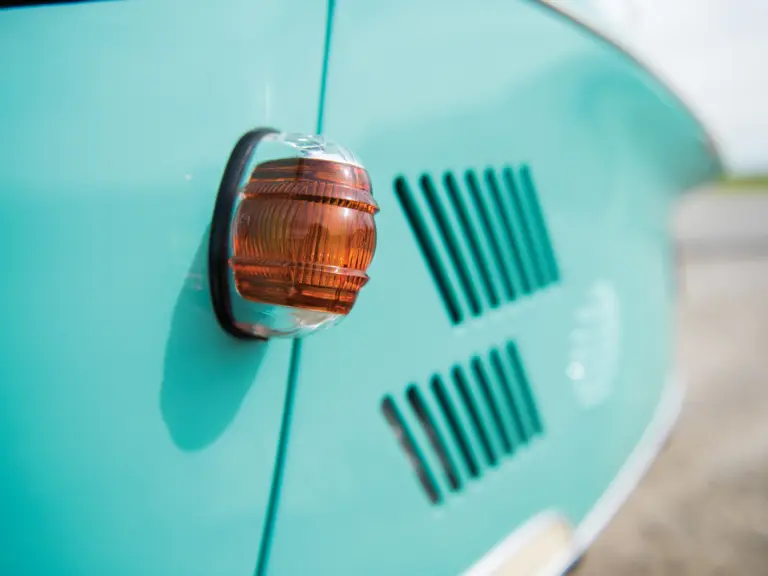
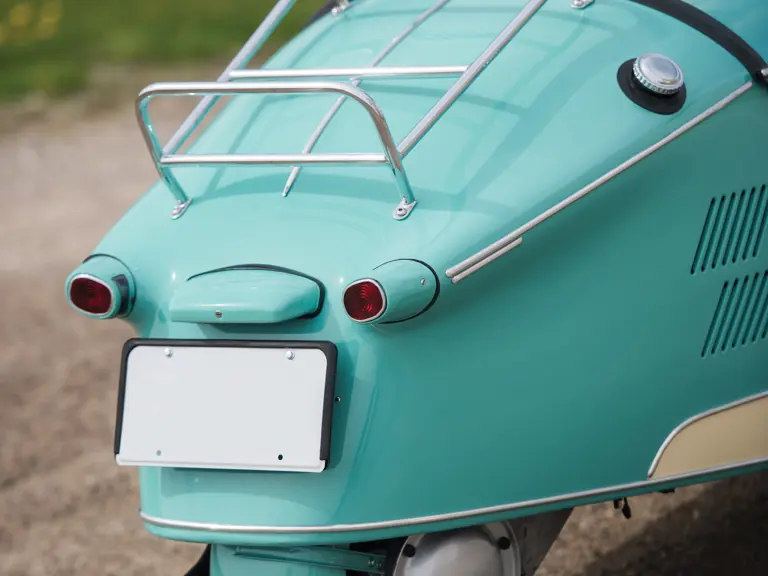
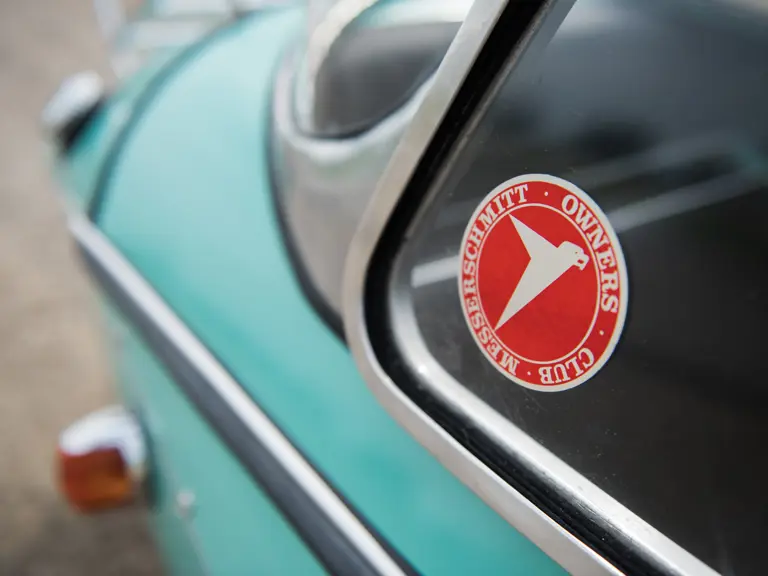
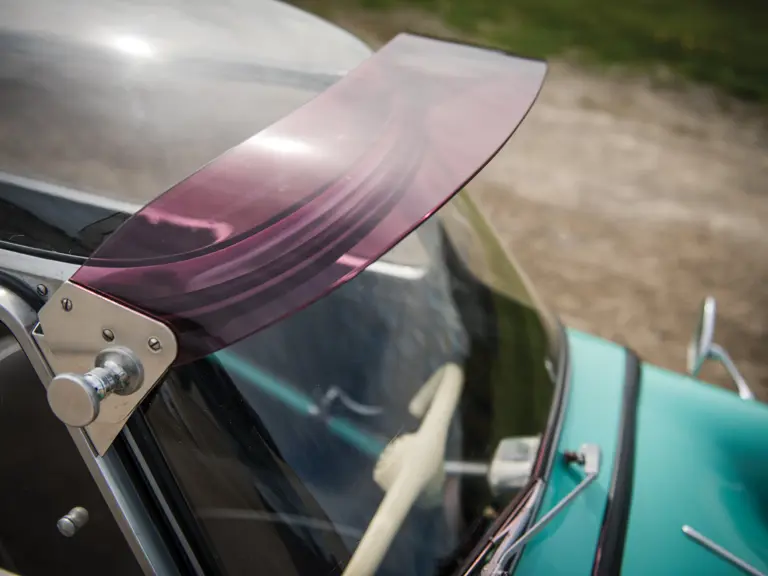
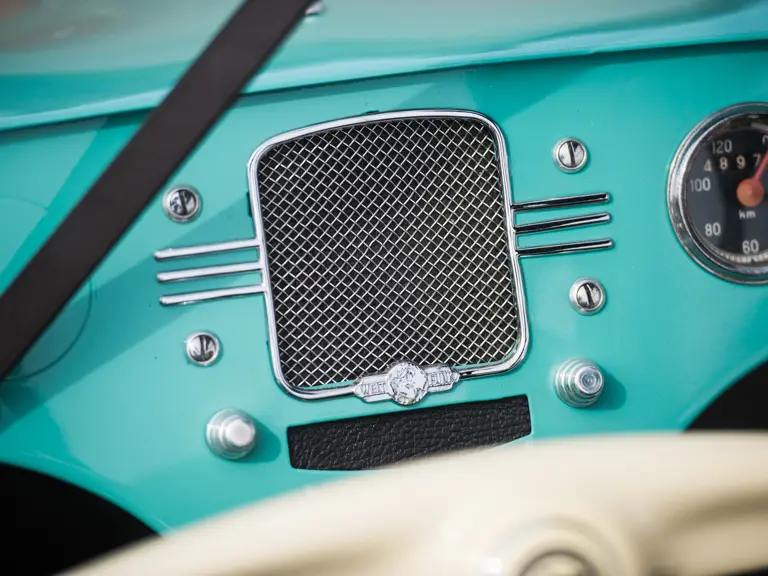
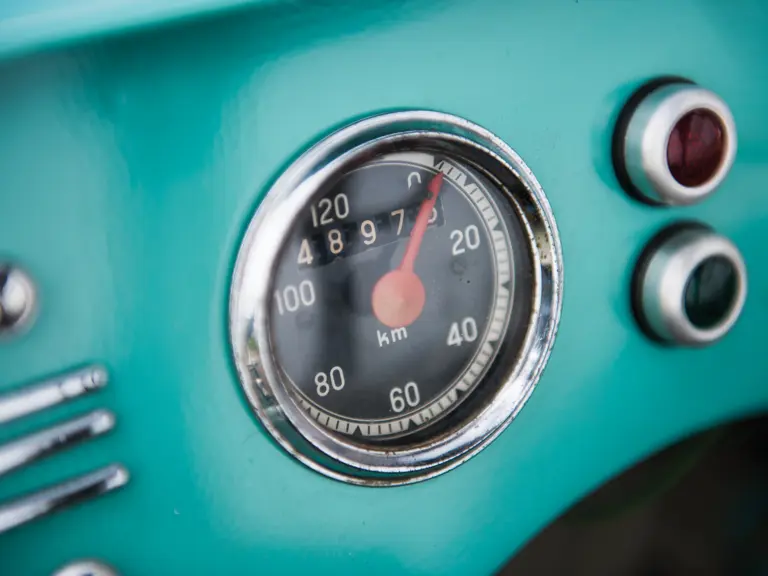
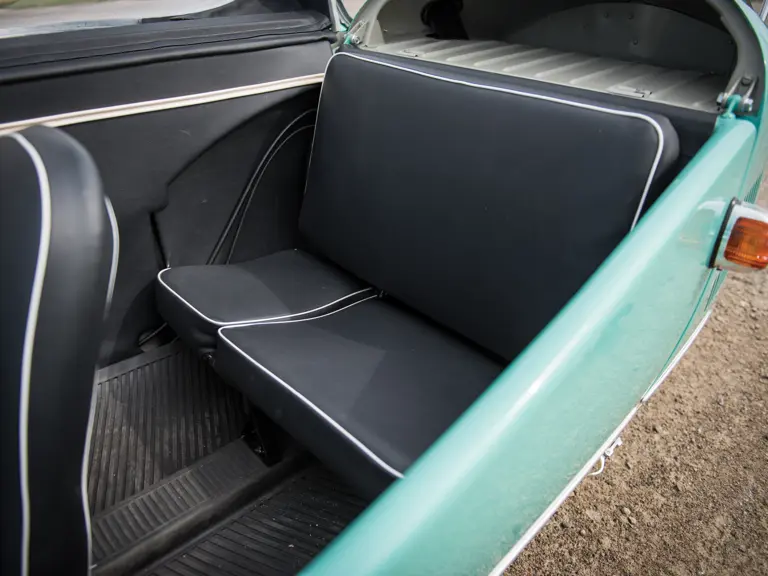
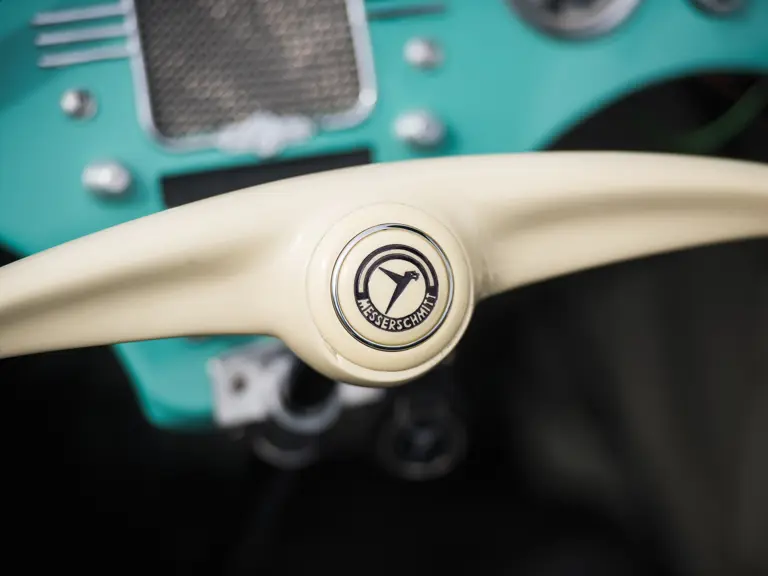
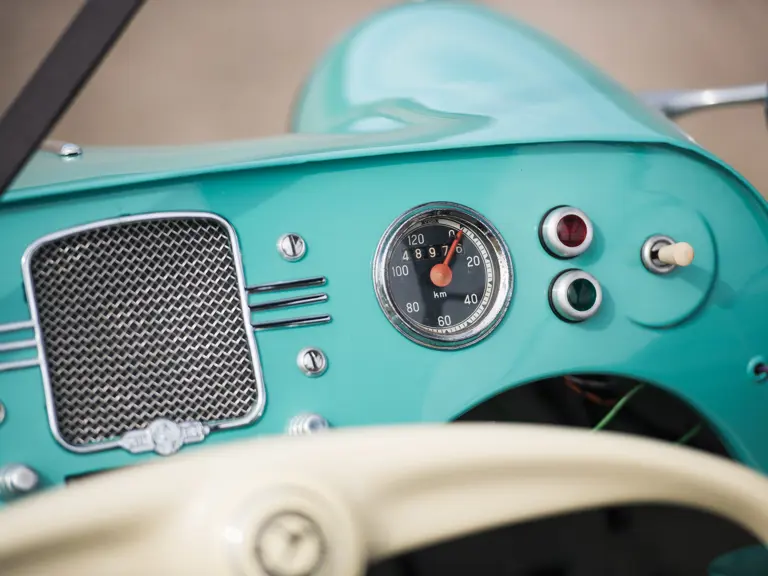
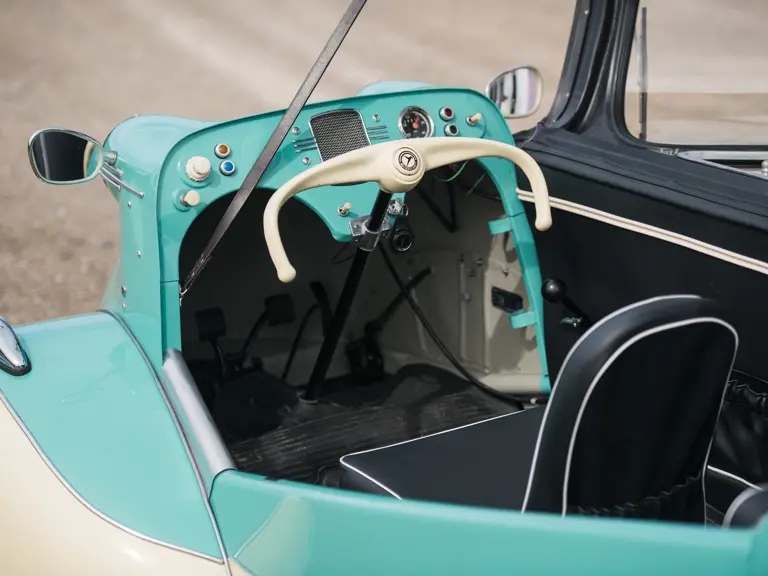
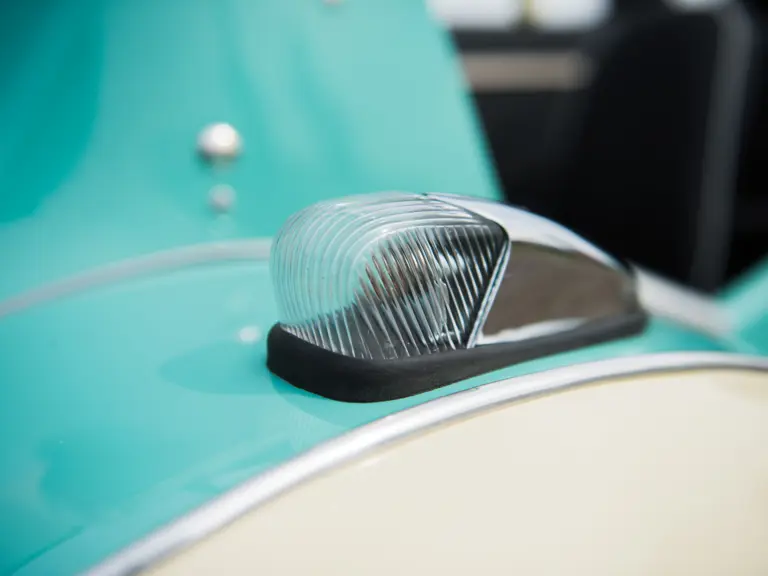
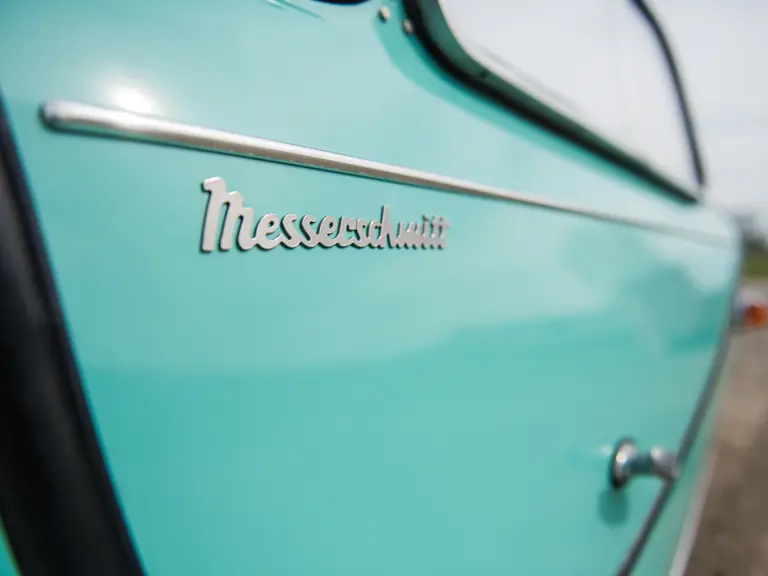
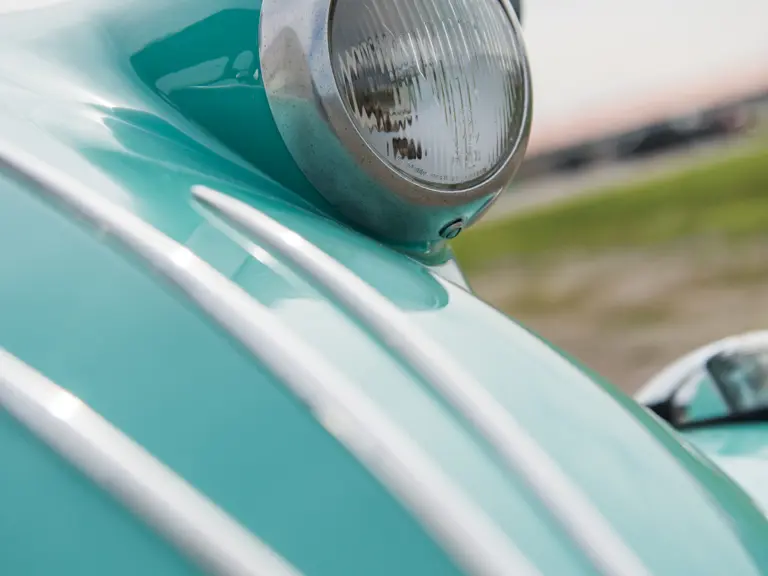
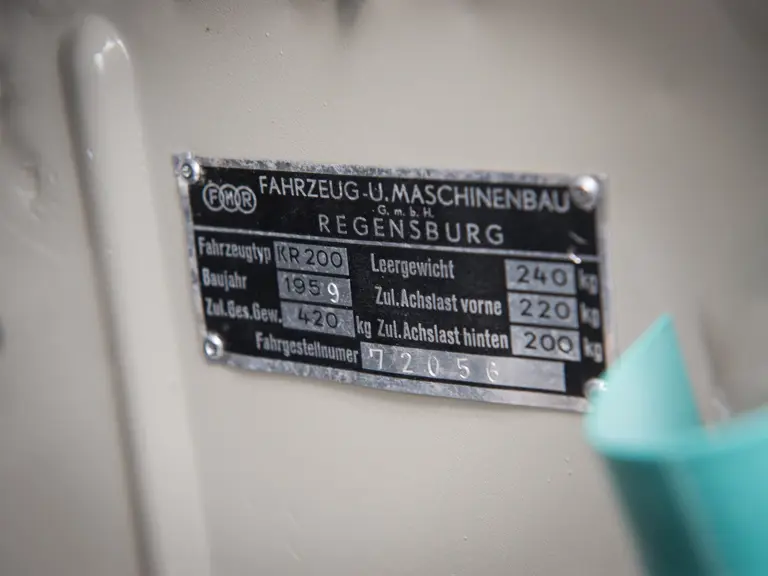
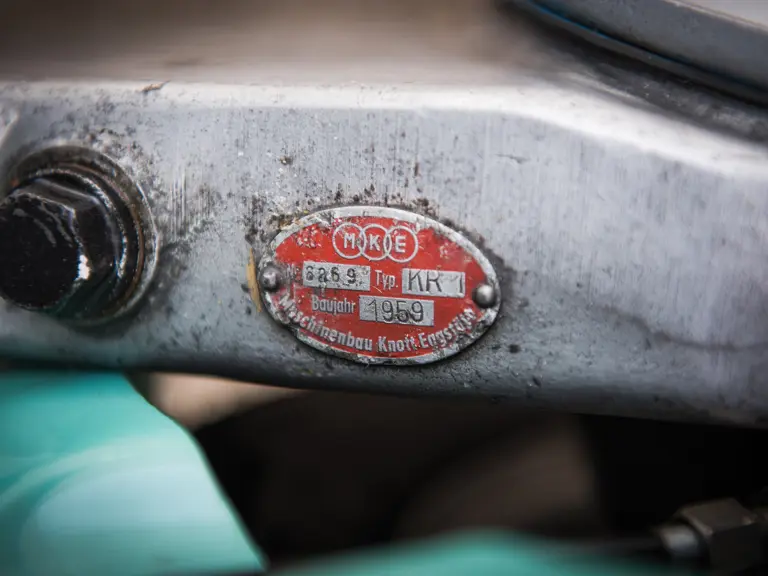
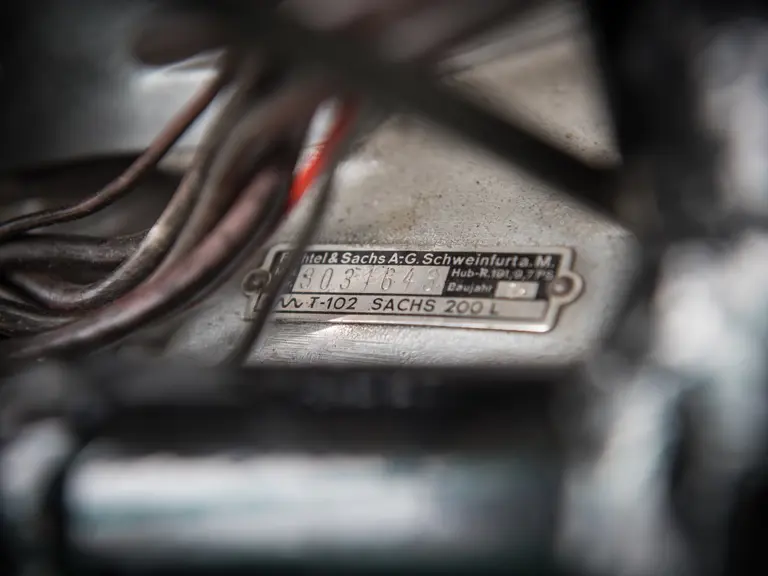
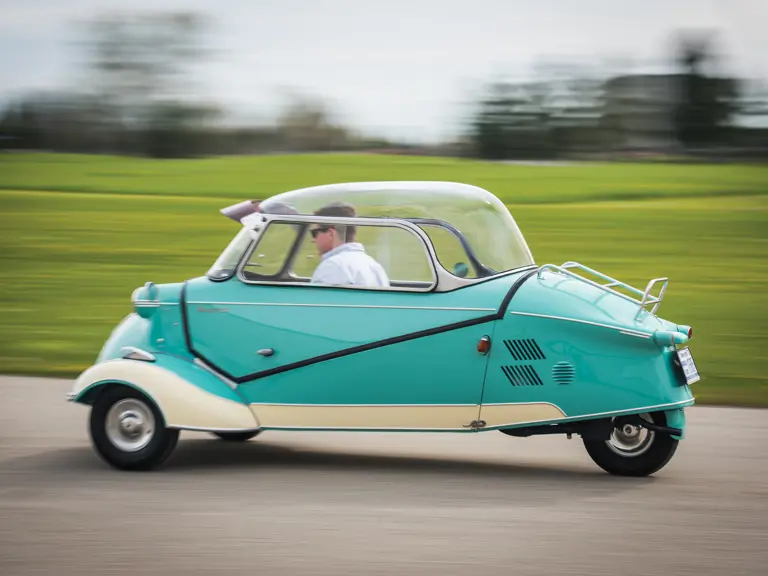
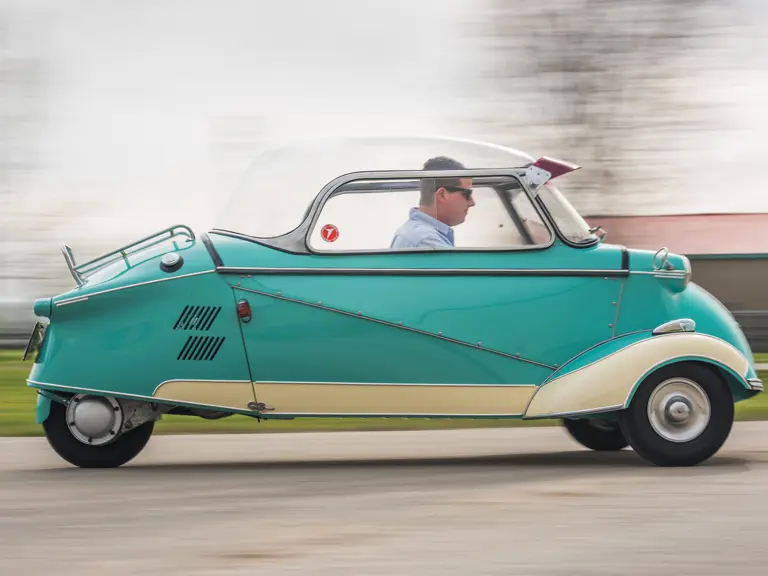
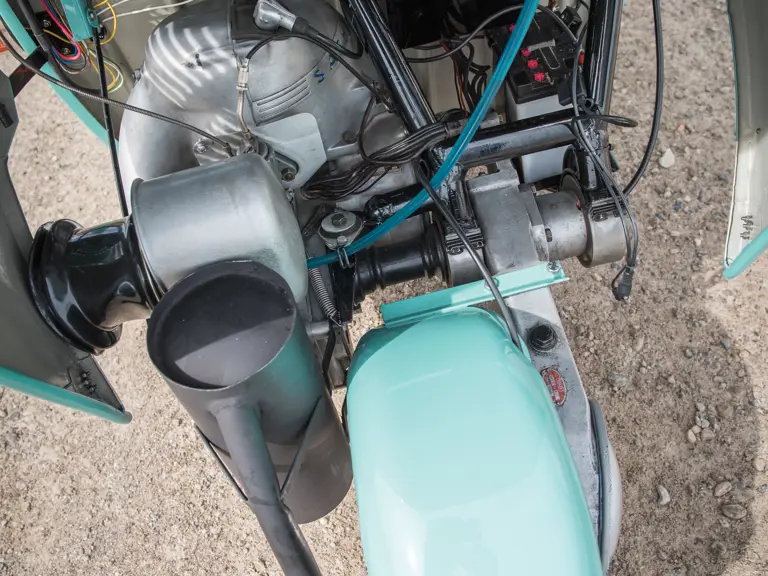

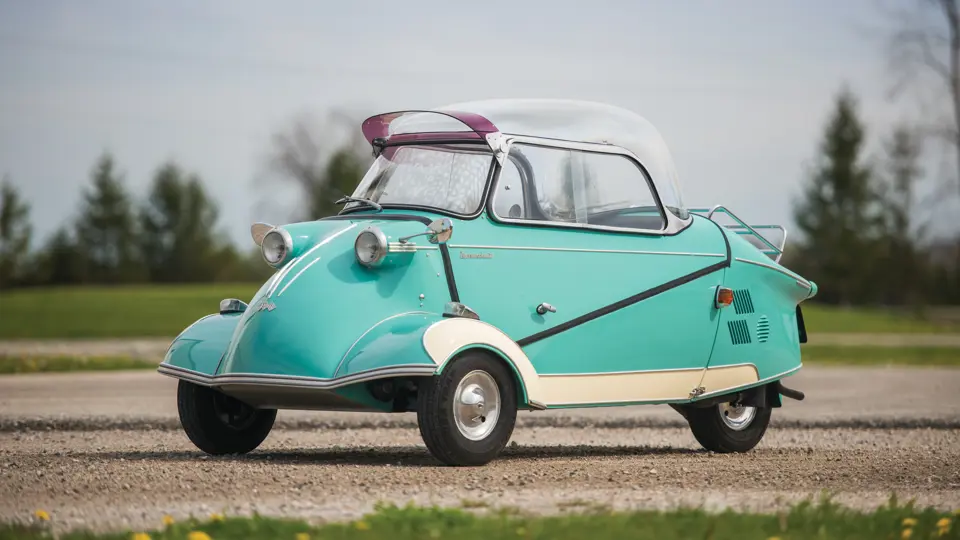
 | Plymouth, Michigan
| Plymouth, Michigan
